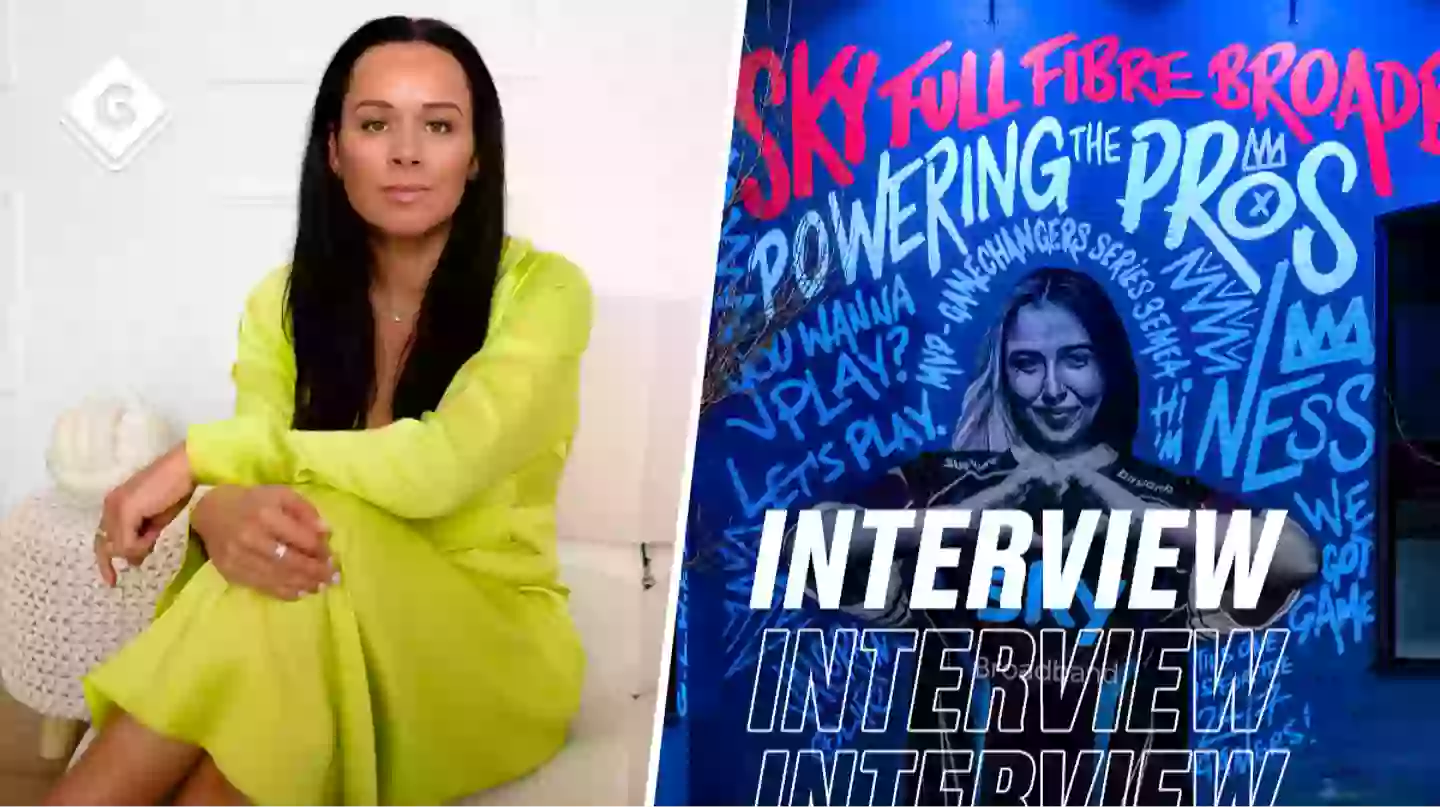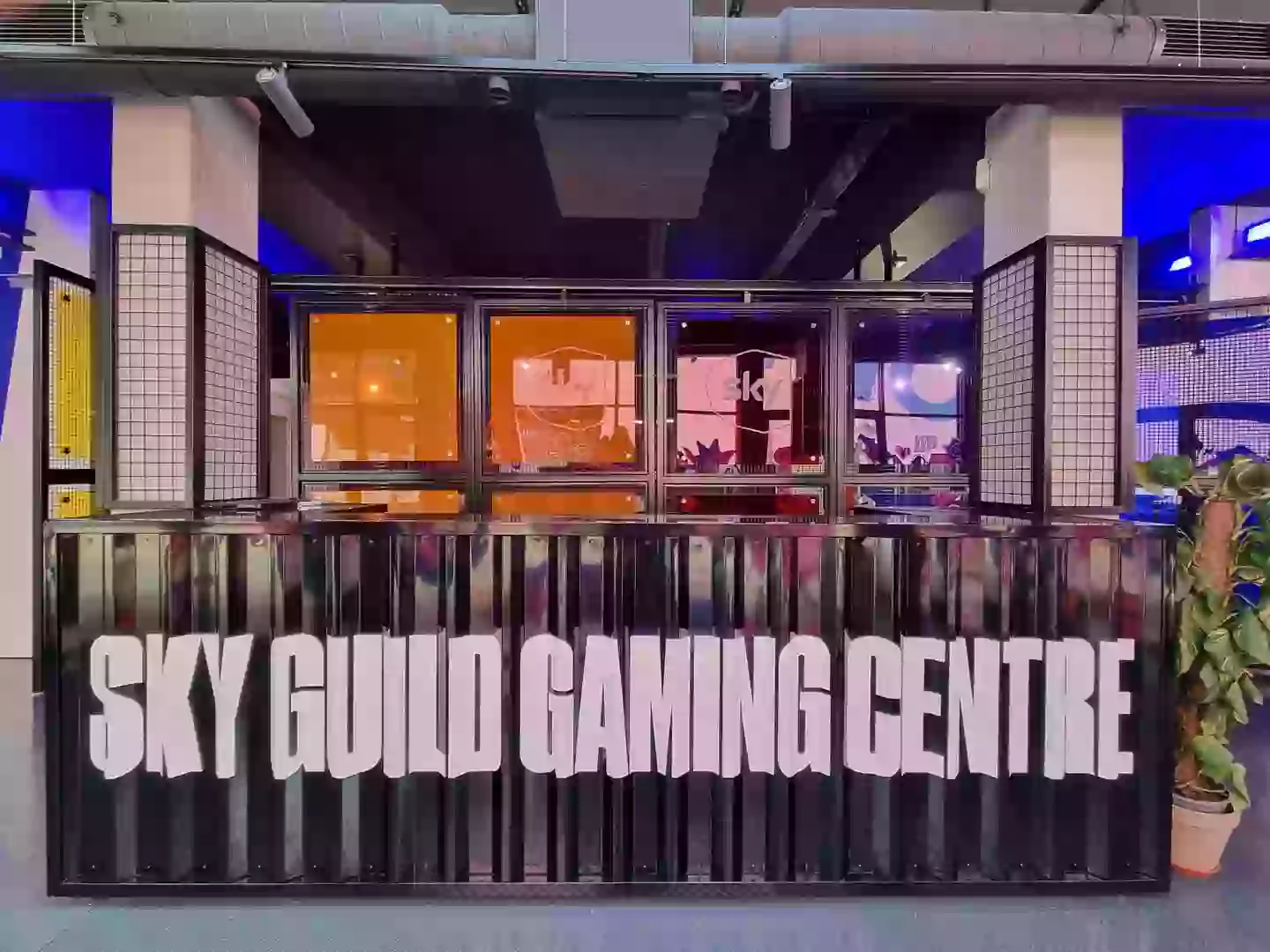
The world of video gaming is a markedly contrasting experience for women when compared with men. It shouldn’t be, especially when so many women are gamers. Yet our inclusion in the gaming community is still treated like an open invitation to abuse, mock, and otherwise ruin the experience for us.
Steps towards a more inclusive environment have been undertaken, however, it's undeniably a mammoth task that will take a lot of dedication, patience, and grit; many trials and tribulations guard the door to equality. Fortunately, Guild Esports CEO, Jasmine Skee, is ready to face it head on. Her passion for inclusivity was visible from the moment we started chatting about the current state of gaming, specifically esports, and what needs to change for the better.
Jasmine is a woman worthy of admiration, having helped Guild Esports partner with Sky broadband to create the #NoRoomforAbuse, a campaign focused on making women feel safer within the community they long to call home.
Advert
Naturally, as a woman at the forefront of championing the marginalised in a male dominated industry, I was eager to delve into the intricacies of running such a renowned company like Guild Esports. “I started as CEO last January,” began Jasmine. “Previous to that I've worked 25 years across sport, music, and entertainment tech.”
Make sure to watch our interview with Guild Esports' Jasmine Skee
“So within the UK, my major roles were head of music sponsorship and then marketing director at Live Nation. Then I was director of propositions and products at Three where I launched the 5G network. So that's probably when I started to come into gaming [...] There's something just really exciting about being part of this industry, which, although it's been around for a while, is still very much at the beginning of structuring what the future of esports will look like.”
Advert
Despite the enormity of the esports sector, it’s still in its infancy when compared to other sports; it’s as exciting as it is challenging to implement changes. Not that that daunting task puts Jasmine off for a second. “Coming in as a female CEO, into an industry where it was predominantly white men. And that's at every level. I then was like ‘Well, why don’t we have female opportunities? And what's the issue around that?’”
“If you look at a couple of our games, like Rocket League, there were 180 tournaments for men and only four for women.” It isn’t just a lack of opportunities that mark female gamers as different to their male counterparts, it’s also the online abuse they face when playing these games. There’s a “disconnect” as Jasmine describes it, one that heavily skewers many formative experiences of the community.
“If you start to look at that, you can see that 75% of Gen Z women and women [in general] experience abuse while they're gaming. And that is often of sexual and violent nature,” continues Jasmine. “So if you think about [esports as] traditional sport, if you're rocking up to basketball training every day and being abused, you probably go ‘I don't want to do this’. So that's really what #NoRoomForAbuse was all about.”
Those doubtful that a campaign can make a difference should reconsider their conclusion; in creating a space to openly discuss the hurdles women face, more awareness has been raised. Furthermore, through that awareness, initiatives and events specifically designed to create safe havens for women have been created, thus ensuring that the well-meaning message doesn’t end just because the campaign isn’t fresh in peoples’ minds.
Advert

“We just wanted a space where people could be themselves [...] and talk about some of the challenges that they had, what they experienced and how they dealt with them,” Jasmine explains. “Because, you know, gaming is so social.” I felt a little bad at that point, being the solitary gamer that I am, however, I recognise how devoid of inclusive spaces we are. Even more so in the real world, away from the virtual safeties of fictional environments.
But this isn’t just about safety, it’s about creating opportunities; opportunities not easily accessible unless you’re fortunate enough to be born into privilege. As someone from a council estate, our family having always struggled, I know well the sting of being overlooked not because I lacked talent in something, but because I lacked money.
“If you look at pro [esports] players, they are predominantly white men. So the one question when I started was, ‘why is there not more diversity?’.” Jasmine added, “And the reality is that gaming PCs aren't cheap at all [...]I think the challenges that we have as an industry are very similar across more affluent sports, in that [equipment like] PCs, consoles, switches all have different price points. And so we need to be mindful of that.”
Advert
Financial barriers, while not a new concept to gamers who’ve poured their time and money into the craft, is still quite surprising for those on the outside looking in. Many fail to realise that all this tech costs money, especially when you start to get to a competitive level, and thus lower income players, regardless of gender, are priced out.

By removing the need for a nepotistic and/or affluent upbringing, the playing field becomes level for once rather than a minefield of hidden pitfalls. This isn’t just true for children but for women and other marginalised communities as well; we don’t all face the exact same issues, but we all share the discomfort of having to contend with issues in the first place. Money, gender, race – they all hinder or help us, even though we know that shouldn’t be the case.
Jasmine nor Guild Esports claims to have the means of eradicating the problem and creating a utopian world of esports, but both have the drive to try and eliminate outdated models of thinking that set gaming back rather than propel it forward.
Advert
What we see today is by no means the final phase – we’re nowhere near that utopian games community we all long to see. As Jasmine herself admits, mistakes can always still be made as Guild Esports continues to evolve and learn. Nonetheless, it’s irrefutable that the company is “committed to making sure [to] see everyone's point of view”. Such goals, in truth, are the bare minimum. However, within an industry that seems to have forgotten that, what Jasmine is trying to do becomes almost noble in the brand’s effort to provide opportunities. Not just for women, but for all.
Topics: Esports, Real Life, Interview, no article matching